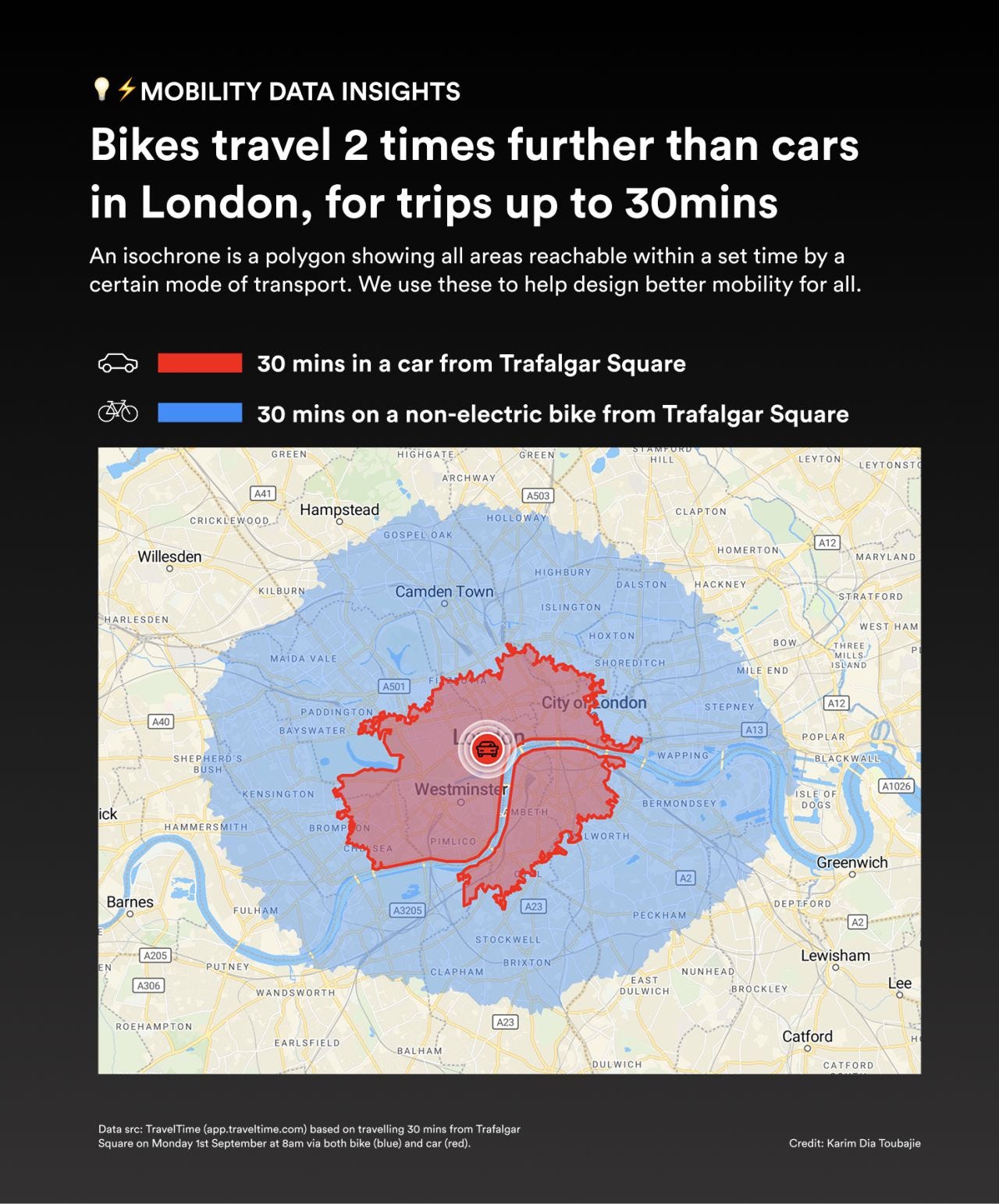A World Without Cars? #181
It’d certainly be quieter.
OK, so cars are useful for some things. But do we need them everywhere, all the time? World Car Free Day may be a day out of 365 days in which we imagine what life would be like with fewer unnecessary car journeys, but there’s power in envisioning something different.
BIG STORIES FOR CYCLING ADVOCACY
CAR FREE FUTURE FOR ‘NATION’S HIGH STREET’. Oxford Street was pedestrianised for the day on Sunday ahead of full pedestrianisation next year. This piece, by the BBC’s Tom Edwards, sets the scene for the move, some history and when and how it will happen, as well as some of the very normal reservations people have over the change.
WALES’ 20MPH SUCCESS, TWO YEARS ON. Yes, it’s now two years since Wales launched its national 20mph default speed limit on certain roads, generally those with street lights. The results are astounding: collisions are down by 25% on 20/30mph roads, with an expected 1000 fewer casualties than if the measure hadn’t been implemented. That includes 14 fewer deaths and 98 fewer serious injuries.
INDUSTRY LEADS ON E-BIKE SOLUTIONS. The Bicycle Association has launched an e-bike safety register to try and reassure the public, transport providers and insurers, following pinging confusion about which e-bikes are safe and which are high-powered, low quality fakes. 11 brands, including Brompton, Giant, Madison, Whyte, are the first to be publicly listed on the register, which is set up be akin to the Red Tractor marque. Any products listed have undergone rigorous safety testing, and more brands are expected to follow.
PAVEMENT PARKING DEBATE RUMBLES ON. That’s right, the pavement parking debate still blunders on, without resolution. Earlier this month MPs raised various residents’ concerns on the impact of blocked pavements - particularly on those who use wheelchairs, pushchairs, or with visual impairments. MPs agreed councils should be able to decide, in their areas, whether drivers should be allowed to block pedestrian space with impunity. Five years and a general election since a consultation on the issue, and the government is still considering its options.
THE HUMAN IMPACT. The Mirror ran a story this week about a man whose mobility scooter became stuck when he tried to get past a car that had been parked on a pavement, and a wall. Kent Fire and Rescue service were called out to Ramsgate after a passerby called 999. Living Streets underlined how scary getting around can be for those who use mobility aids, and the importance of tackling the problem. How much longer must he and other pedestrians have to wait for a pavement parking ban and adequate enforcement?
OTHER HEADLINES
CITIES AREN’T LOUD. We associate cities with sound but it’s worth remembering cities wouldn’t be half as noisy without motor traffic. From standard engine and tyre noise, modified vehicles add an extra level of nuisance and stress. Laura Laker uncovered how poorly the UK is tackling vehicle modifications in a recent Substack post. We know noise stresses the human body, causing a variety of health problems, and curbing traffic is one solution, things like no through route roads, road diets, etc. There’s certainly a lot to improve.
INTERESTING GRAPH OF THE WEEK:
E-bikes are faster than cars in many cities now. Aggregated connected vehicle data from Toyota Connected Europe shows that in Greater London, average motor traffic speeds are 9.6mph (6mph in central London). This isochrone shows that trips up to 30 minutes are more than twice as fast on a bike, which helps explain micromobility’s growth, says Toyota’s Karim Dia Toubajie. It’s faster by e-bike in Berlin, too. Source via LinkedIn.
ACTIVE TRAVEL WORD OF THE WEEK:
Pedestrian Pound. The idea that those who visit a street on foot (or wheeling), spend more money than those passing through in motor vehicles. Makes sense, when you think about it. The most recent Pedestrian Pound report, from 2024, is on Living Streets’ website.
Until next time,
Adam
Adam Tranter
CEO, Fusion & Founder, #BikeIsBest
This newsletter is brought to you by Fusion, the agency for movers, specialising in communications and public affairs for active travel and mobility.






